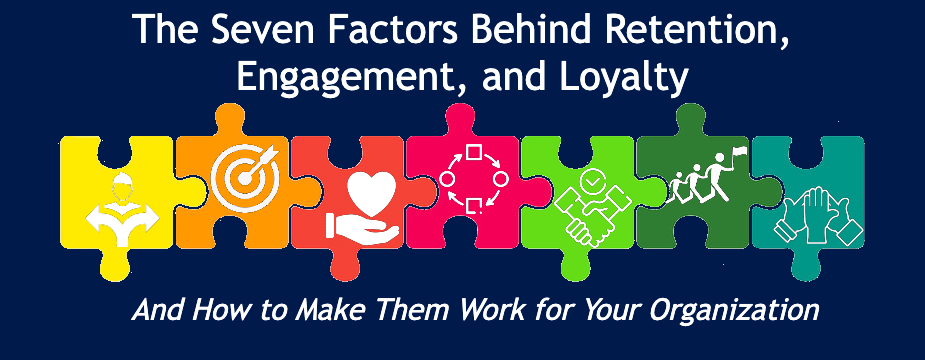Business Lessons from the Greatest Comeback in NFL History

The ability to perform at a high level and achieve remarkable goals, whether in business or sports, doesn’t just happen. It’s a combination and culmination of many factors, built upon a foundation of these nine components.
The Seven Factors Behind Employee Engagement, Retention, and Loyalty Challenges – And How to Make Them Work for Your Organization

Regardless of what the economy does in the near term, workforce retention and engagement challenges will be part of life for years to come. Fortunately, there are positive ways employers can respond to these issues that will benefit everyone involved.
Remote? Back in the Office? Hybrid? It’s Not WHERE Your People Work but HOW They Work That Matters

How should you structure your organization for the future of work: everyone back in the office, fully remote, or a hybrid approach? The latest research suggests that for enterprises focused on optimizing operational performance (i.e., pretty much everyone)—that’s the wrong question to ask.
Why Emotional Intelligence is Vital to High-Performing Teams

In business as in sports, high-performing teams aren’t built on talent alone. While a certain level of individual talent is an essential element, teams that ultimately win championships—or outperform the competition in business—have talented members who work together and collaborate as a cohesive group. And the key element in creating that collaboration is emotional intelligence, or EQ.
To Build High-Performing Teams, Focus on Workplace Relationships and Employee Well-Being

Every enterprise today has access to technology, information, capital, and even talent (though they may have trouble retaining it). So what is it that separates high-performing organizations—those able to retain and engage the best people, and operate at a consistently high level—from their struggling peers? Recent research studies from Harvard and the U.S. Surgeon General agree on the answers.
Want to Improve Your Business Performance? Fix Your Corporate Training Issues.

The bad news is the state of corporate training in the U.S. today is abysmal. The good news is, this is fixable. And companies that do it well will reap multiple benefits.
How to Build and Maintain High-Performing Teams

In today’s tight labor market and challenging economic environment, it’s more vital than ever to not only attract great employees but also keep them engaged. So what’s the secret to building and maintaining extraordinary teams?
Two Types of Team Building Takeaways
During team building activities, participants experience challenges, camaraderie, recognition, and fun. But what do they take away? After the shared laughter and the high-fives, what do they bring back home and to the workplace from that experience?
Why Your Event Needs a Keynote Speaker (And How to Find the Right One)

If you organize corporate or collegiate events, chances are you’ve hired keynote speakers and understand their importance. If you’ve been doing this for a while, chances are also that you’ve had hits and misses—speakers who have knocked it out of the park, and others who have fallen a bit flat. Wouldn’t it be great to be able to pick winners consistently? Here’s how to do that.
Recruitment, Retention, and Relationships – How Team Building Helps

The bad news for employers is that today’s worker shortage isn’t just a temporary blip caused by the pandemic, but is part of a longer-term trend. The good news is that the underlying reasons for worker dissatisfaction are within the control of leaders.
